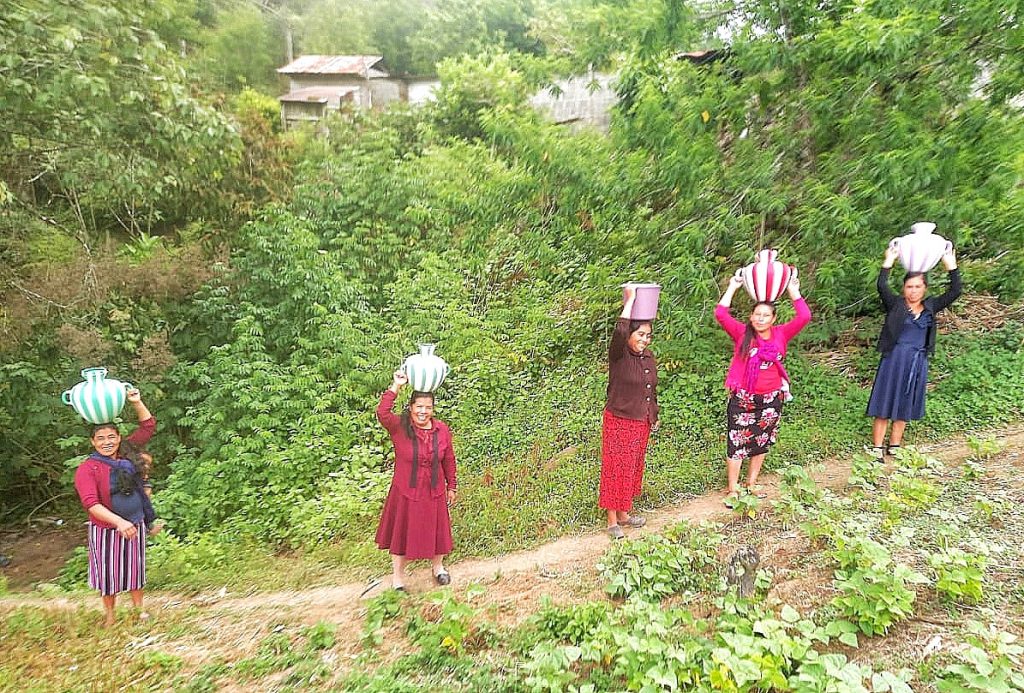Ejido Bellavista, Chiapas, Mexico
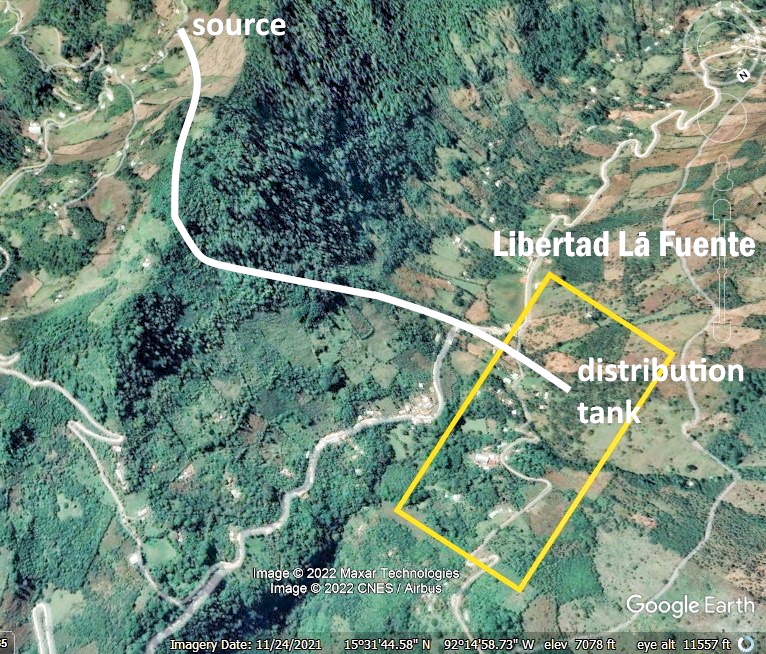
Libertad La Fuente is home to 41 families many of whom are descendants of the Maya refugees who fled the war in Guatemala to find safety and freedom deep in the mountains of Chiapas, Mexico. The community is located literally at the top of the world about 4 hours from the City of Motozintla.
To get from their remote location to the nearest town of Siltepec, people board one of the few trucks that provide scheduled transportation. They sit on wooden benches set up in the bed of the pickup as it picks its way through the impressively steep mountainside where one would not want the driver to deviate from the rough dirt track. The most difficult aspect of life in this impoverished region is the lack of access to water, a problem they have been collectively trying to solve for many years. They say that the possibility of having water on tap in their homes is a long-held dream for them.
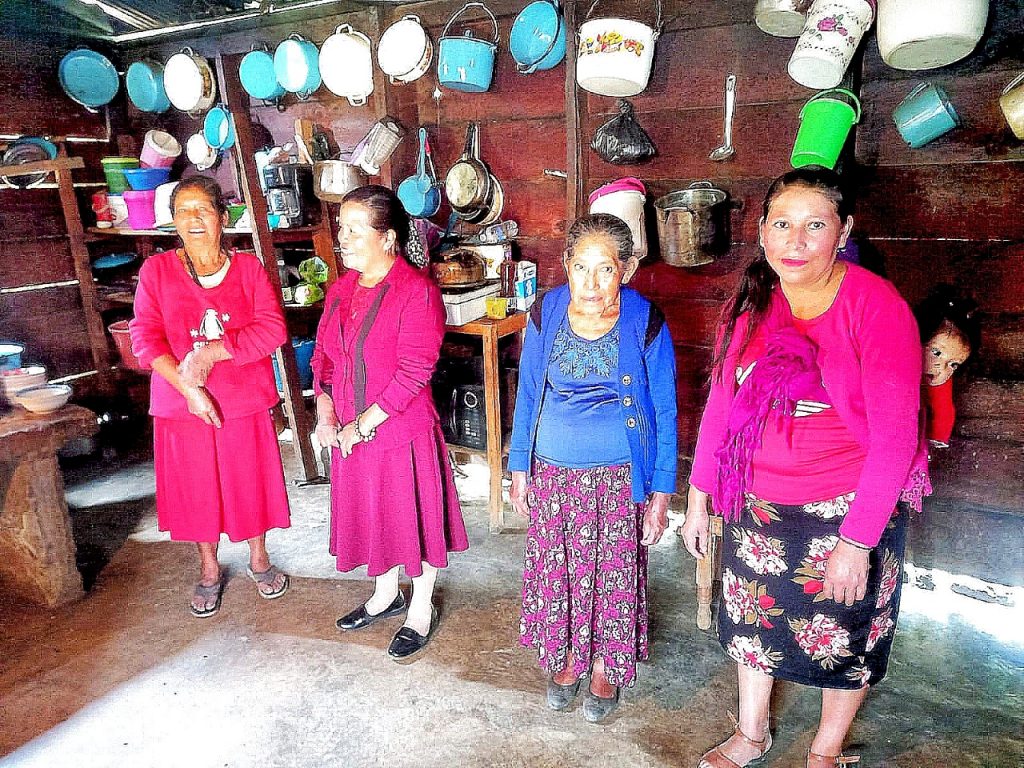
Description of the Community
These families live by growing corn and other subsistence crops. While at the lower elevations below the mountains where they live, thousands of families produce the high elevation coffee that is sought by gourmet roasters but at the elevation of Libertad La Fuente, the cold and fog prevent them from growing this cash crop. The lack of opportunity to work affords them an impoverished standard of living.
However, some families have been able to enroll in a new governmental program that provided them with avocado trees and other commercial crops. For those who can transport their product to a market, this has given them some additional income. For the rest, the typical path to a better quality of life is to send a family member to the United States to find work and send the money they earn home.
Those families who have a relative working in the United States are able to build homes of cinderblock. The rest build their homes from rough-cut boards taken from the ever-shrinking forest. But no matter the material, those who can afford the luxury paint their homes in exuberantly bright colors even if it is just the front facade.
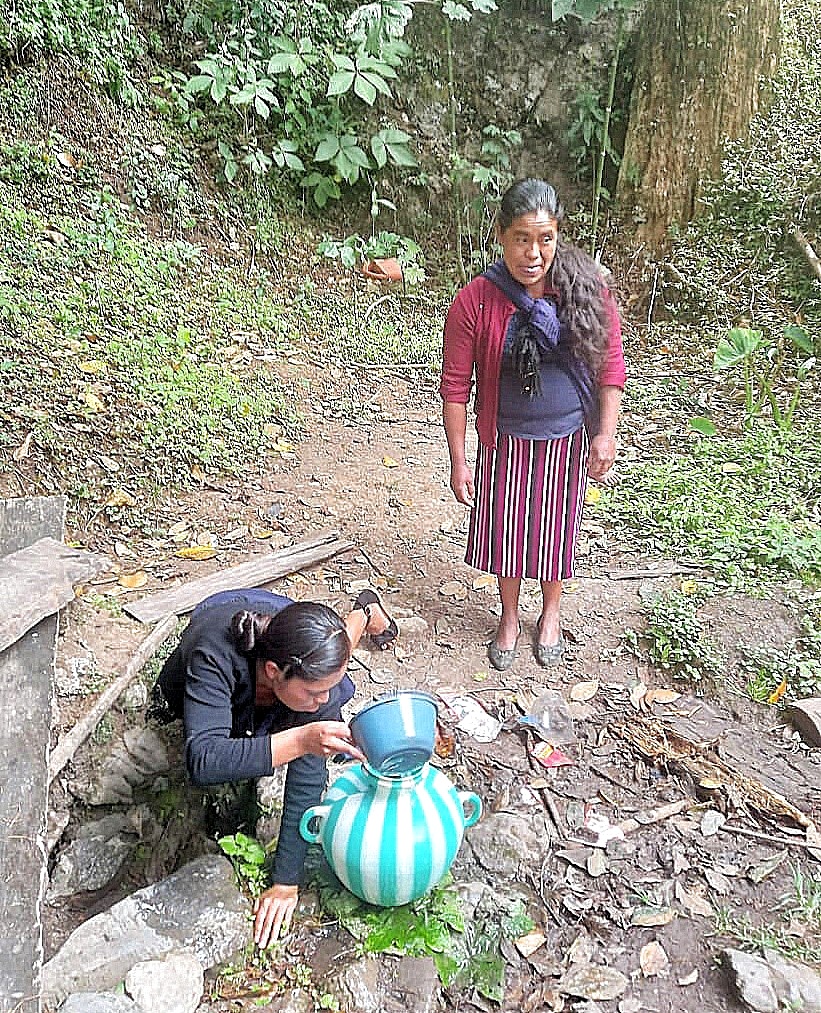
Problem to be addressed
The community does not have a communal water system. Fetching water every day is a tremendous burden for the women. They have to make many trips every day to fill their “canteras”, the large jugs they carry on their heads, with water from small openings in the limestone subsurface where it bubbles up. A woman can spend hours over the course of her day scooping water out with a small bowl to fill their containers and then haul them home.
The chore of obtaining enough water for household use consumes a woman’s time, and, as they explain, “It wears you out because you can’t get other things done.” The elementary school that serves Libertad and the surrounding communities also needs water for drinking and sanitation, a priority for the leader of the Ejido of Bellavista, the local peasant authority. For years they have unsuccessfully tried to obtain support from the local municipality to build a water system. Without official help to build the infrastructure, the investment needed to buy the materials has been out of reach for them.
This proposed water project will serve 246 people and the local school.
Project Description
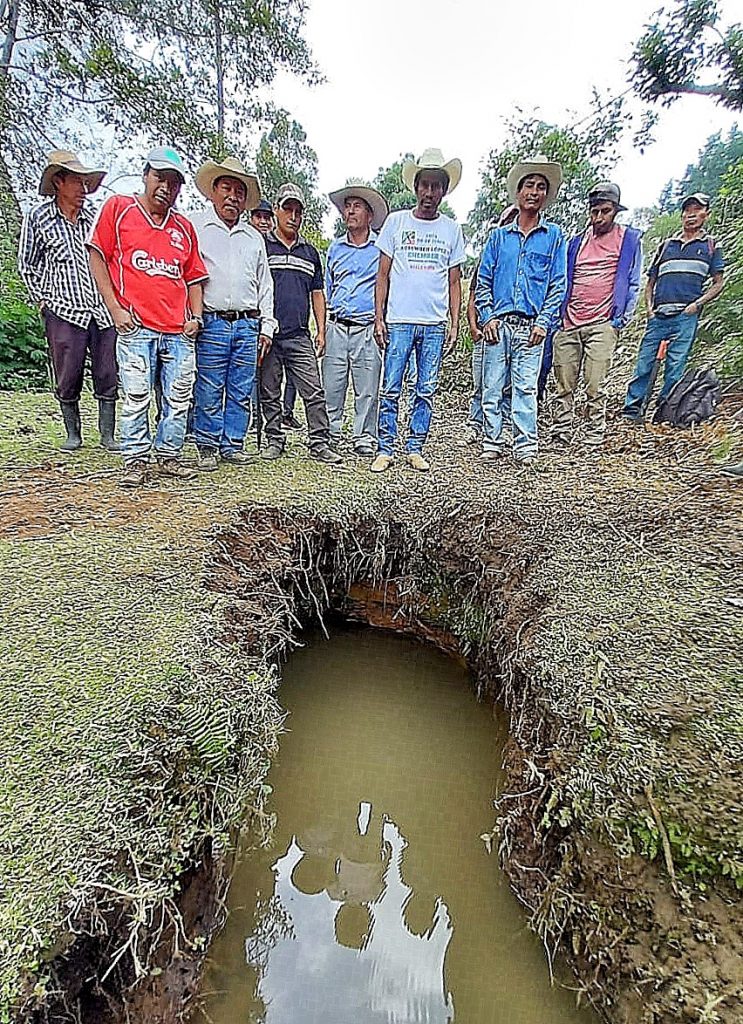
The leaders of the community first approached Sexto Sol in 2019 to ask for assistance to enable them to build a water system. The water source they had at the time turned out to not provide an adequate amount of water during the dry season when it would most be needed. Fortunately, in 2020, the people pooled their money to buy a large spring that has good flow all year long.
The proposed plan is to build a gravity-fed system using a two-inch diameter polyduct hose that will deliver the water 3.8 kilometers through the cornfields and stands of forest to where they will build a distribution tank. To date, we have successfully used this material to bring water to over two dozen communities. Given the steep terrain from the source to Libertad La Fuente, part of the hose will be the more expensive reinforced caliber that will be used on the steepest grades since it will withstand the increased pressure of the water at those points.
The work will include digging a short trench at the source to create a passage for the hose where a small rise would otherwise stop the flow. Each joint of the 100-meter sections of hose will be fastened with metal O-ring clamps that will be screwed tightly to prevent the sections of hose from separating due to water pressure, thirsty animals or vandals.
We have secured a commitment from the manufacturer to deliver the hose all the way from the coast to the turn-off where the road leaves the pavement and travels into the extremely steep mountains. At that point, it is expected that the mayor of the local municipality will provide a ¾ ton truck and a local driver familiar with the area to transport the materials up to the community by making several trips. This will be an epic feat but the local people are accustomed to working out logistics to get challenging tasks done.
The community is organized and neighbors enjoy good relations. They have an elected water committee whose leaders will coordinate the work needed to install the hose.
Once the materials are delivered, they will organize work teams comprised of a person from each family for the collaborative effort to build the water system. Teams will carry the huge rolls of hose to the points where they will be connected. As the work progresses to lay down the water line, they will bury the hose where the terrain allows to protect it from the elements. They have secured permission for the hose to pass through the private lands it must traverse to reach the community.
Part of the work will be to build the necessary air intake vents or “respiraderas” as a safeguard against suction in the hose that could otherwise cause the hose to collapse when it traverses the varying grades in the mountainous terrain. Sexto Sol would provide technical assistance to help them achieve this.
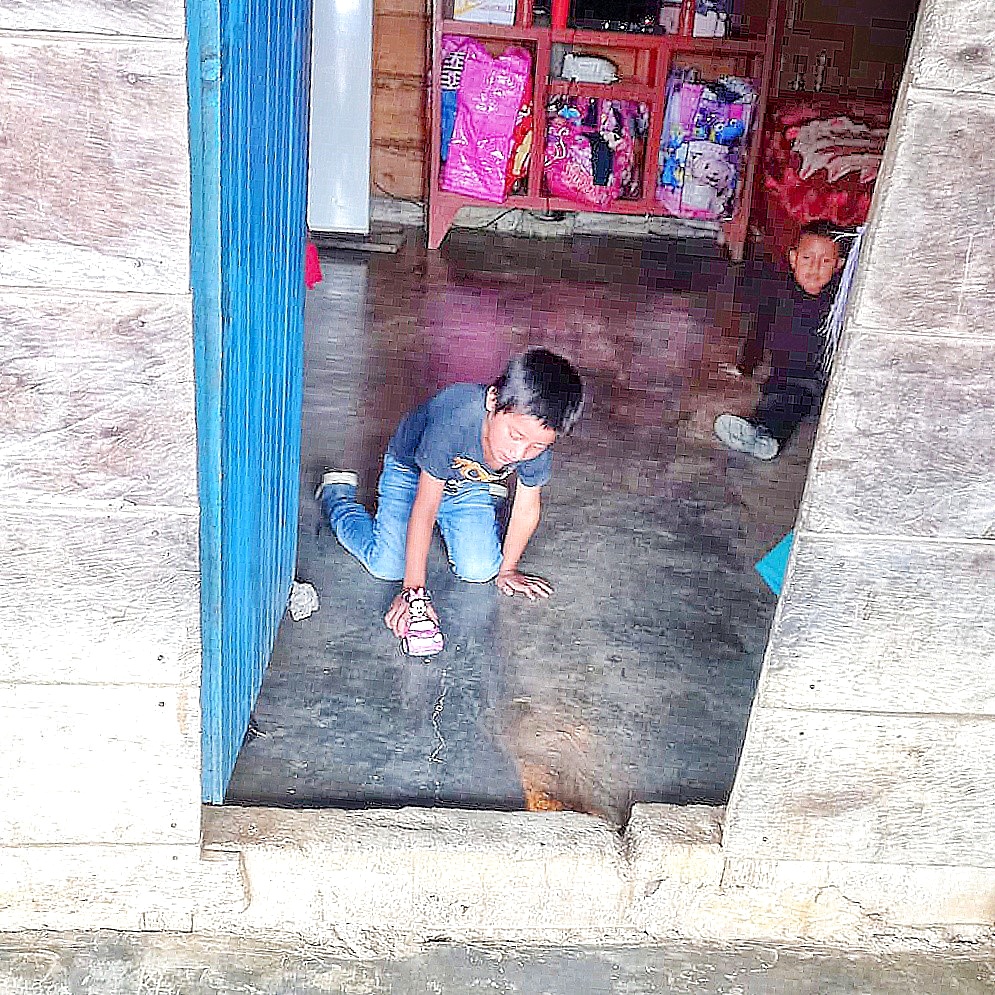
Project Manager:
The project will be administered by Tamara Brennan, Ph.D. of The Sexto Sol Center for Community Action, an award-winning non-profit that has had a permanent presence in the region since 1997.
This project is part of the ongoing Sierra Madre Water Program, a comprehensive effort between the Sexto Sol Center for Community Action, Water Charity and the National Peace Corps Association to improve access to water in the underserved and impoverished Sierra Madre de Chiapas region of Mexico, spanning the border with Guatemala. To date, this collaboration has brought water to more dozens of villages impacted by a major earthquake in the region and left without aid from the government and ignored by most aid agencies.
Monitoring and Maintenance:
Once the project is completed, it will be the responsibility of the water committee leaders to oversee the wise use and equitable distribution of the water by all users. A designated person elected by the members of the water association will be responsible for assessing the need for communal work that might be needed to maintain the water system including cleaning the tank at the source, repairing any clogs that might occur after heavy rains, and generally keeping the system in continuous working order. The parents’ committee will oversee the upkeep of the water going to the school.
Amount requested: $6,684.40 U.S.D.

The people in Libertad La Fuente extend their sincere thanks for your considering their needs and for offering them the hope of the possibility of making this most significant improvement to their quality of life.
